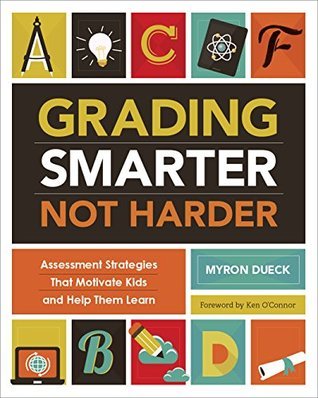What do you think?
Rate this book


227 pages, Kindle Edition
First published January 1, 2014
Dueck definitely echoes many of the beliefs and concerns I have regarding traditional grading and assessment practices, and he also recommends ways to address this topic- providing some solutions to the "but what about..."s that are often asked by educators. Dueck writes from the point of view and philosophy that what we are doing in assessment and grading is a remnant of what we experienced as students, and that it doesn't serve us or our students. It is very apparent that for him, ensuring that students learn is the most important thing about being a teacher. To that end, he considers what is necessary for learning to take place, and he addresses the issues of poverty, relationships with students, the high pressure to succeed placed on some students, etc. Within the book, Dueck shares issues and strategies related to grading, homework, unit plans (syllabi/ rubrics/ unit "goals"), retesting, and creativity.
I found some great validation of my own personal beliefs and philosophies about teaching, grading, and assessing in Dueck's book. Dueck has conducted thorough research of the topic and has an extensive number of references and works cited, but he also shares personal anecdotes of what he has tried and what has worked or not worked in his own classroom. There are a number of rubric, checklist, and "contract" examples in the book that may be very helpful to educators. This book is a bit more directed to teachers teaching middle and high school than elementary, and that made it only a little less relevant for me. One other thing I sensed was that, even though he believed differently, Dueck found a way to be within the range of what was "accepted practice" at times. It was as though he knew if he went too strongly, people would be turned off and wouldn't read the book. I get this, but there are times when I wish he would just "stick it" to the people who use "gotcha" practices in grading (assigning zeroes, never allowing retests or second chances, etc.). All in all, this was a good read with some practical applications.